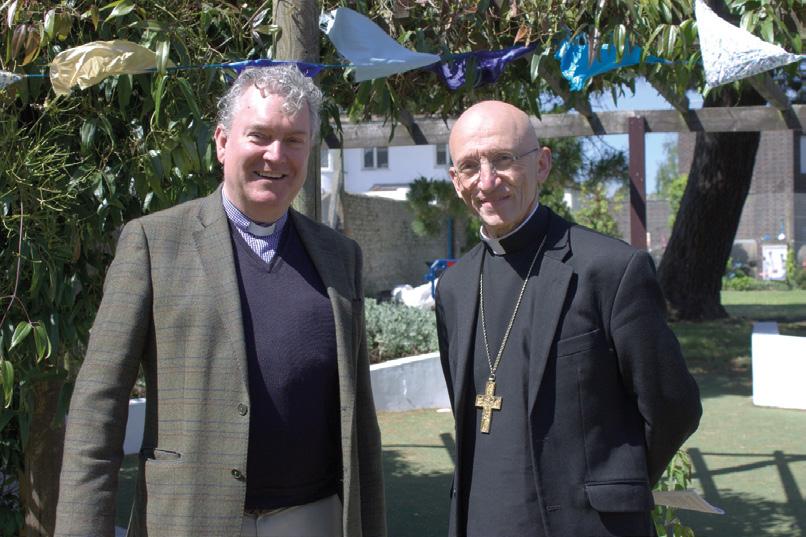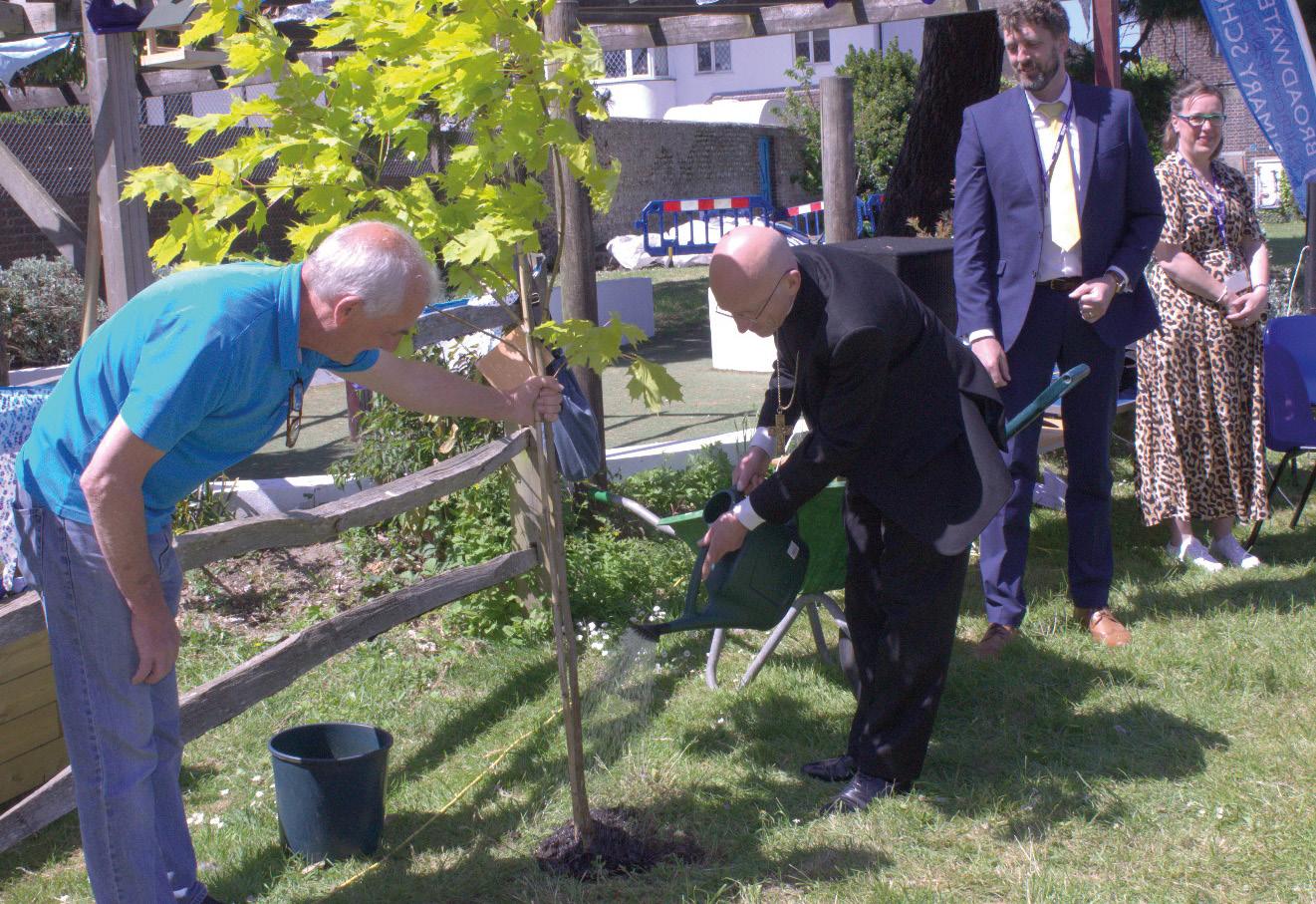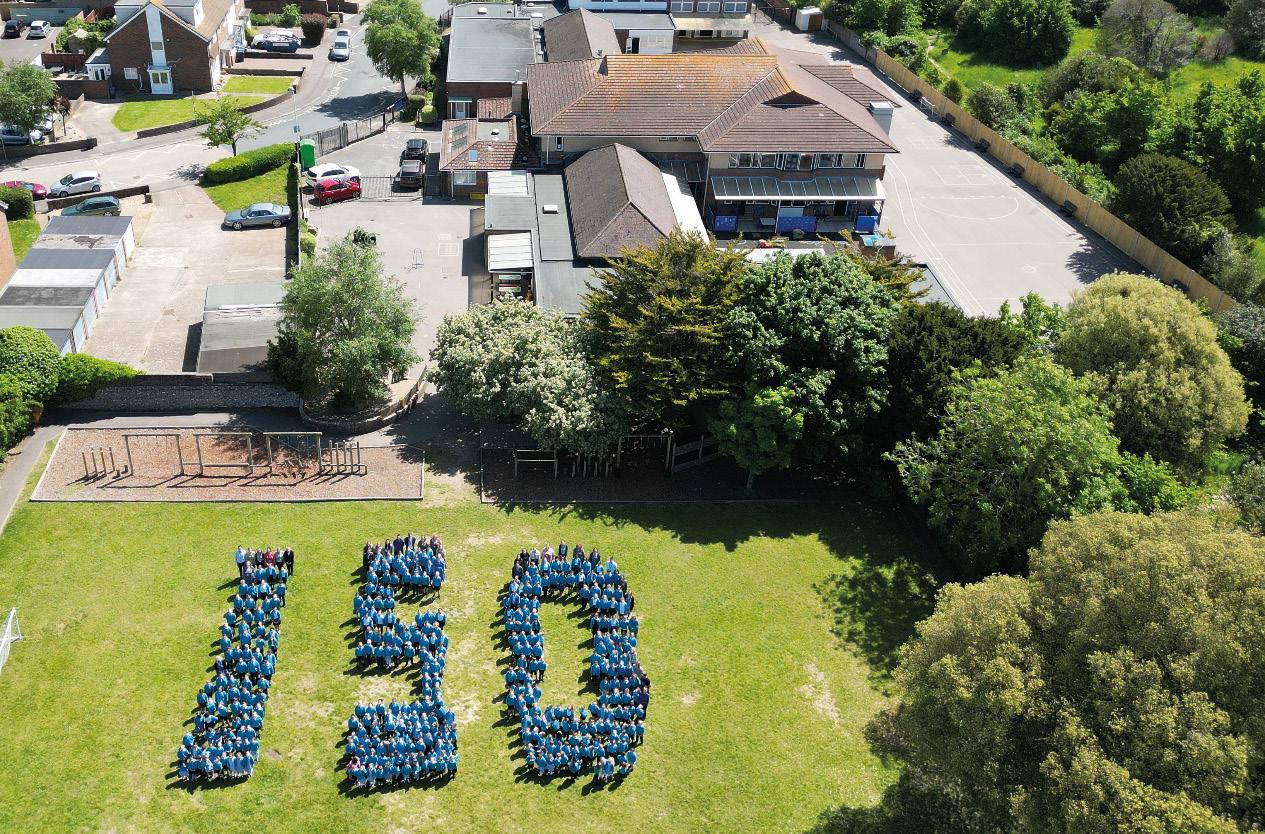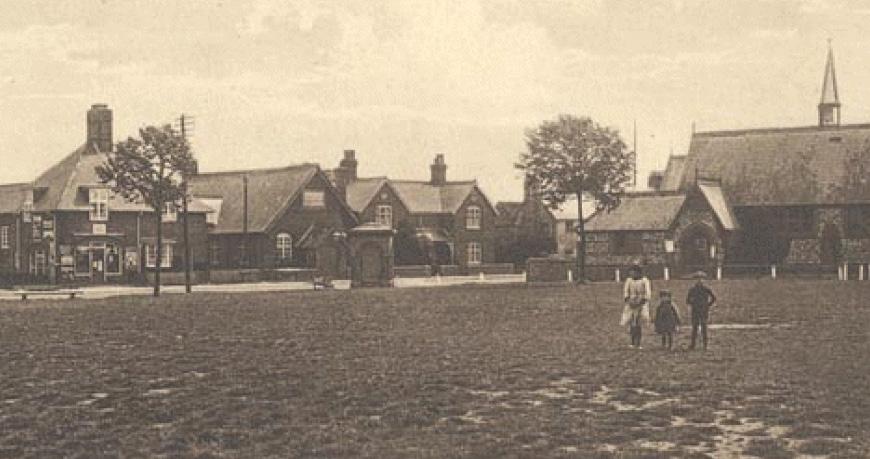
5 minute read
Make cities and human settlements inclusive, safe, resilient and sustainable
To continue with our series articles, tracking in numerical order, through the of United Nations Sustainable Development Goals (UN SDG), Trustees Amberlouise Everitt and Emma Cameron from CREW give us a deeper look at UN SDG 11� This goal aims towards renewing and planning cities and other human settlements in a way that offers opportunities for all� Access to basic services, energy, housing, transportation and green public spaces is central to this goal, while reducing the use of resource and environmental impact�
We already know that the most sustainable transport options for humans are walking, cycling and working locally� Local group, Active Travel Worthing, are making efforts towards improvements to walking, wheeling and cycling routes� Recently, subsidised low cost bus travel is a great incentive, and a good alternative to driving� A low cost train service would be even better!
Advertisement
Creating a sustainable town with housing for all, whilst keeping our green spaces, is something we need to continue to work on with our local councillors, residents associations, MPs and each other� fires, flooding and sea level rise, and how we could/should respond�
Globally, more than 1 billion people face being displaced within the next 30 years as the climate crisis escalates, increasing the incidence of sudden and slow-onset disasters� Risk reduction strategies are important, globally, to reduce forced migration and aid stabilisation of populations in areas affected by disasters, which we are already seeing�
11 SUSTAINABLE CITIES AND COMMUNITIES
NEXT MONTH

12 RESPONSIBLE CONSUMPTION AND PRODUCTION

Make cities and human settlements inclusive, safe, resilient and sustainable
August 2023
A huge part of ensuring our town and its residents’ safety and resilience, is disaster risk reduction� How do we assess the impact that climate change will have on Worthing in order to build resilience within our community? David Sale, Climate Change Policy & Partnerships Manager at West Sussex County Council, CREW and others are planning outreach events to discuss these topics and look at local adaptation� David has developed a Climate Vulnerability Index tool which will help us to measure disasters we will face such as food shortages, heatwaves,
Migrants and refugees mostly move to urban areas� They are more likely to live in segregated and poorly maintained areas, making them more vulnerable to abuse and exploitation with restricted access to services� Exclusion from basic services has a very negative impact on well-being and the socio-economic development of urban areas�
Thriving communities go hand in hand with a diverse population� Migrants can bring innovation and creativity� It is important to remember that refugees have experienced some of the worst challenges in human life� Perhaps, together, we can show the very best of humankind by welcoming migrants and refugees, whatever the reason for their situation�
• In 2020, globally, more than 1 billion people lived in slums or informal settlements, with Central and Southern Asia, Eastern and South-Eastern Asia, and sub-Saharan Africa accounting for 85 per cent of them�
• In 2019, ambient air pollution from traffic, industry, power generation, waste-burning and residential fuel combustion resulted in 4�2 million deaths�
• In 2021, 99 percent of the world’s urban population lived in areas that exceeded the new air quality guidelines set by the World Health Organization (WHO)� People in low and middle income countries are disproportionately affected by outdoor air pollution, accounting for 91 per cent of the 4�2 million premature deaths�
• Between 2015 and 2030, annual passenger traffic globally is projected to increase by 50 per cent, and the number of cars on the road is likely to double�
UN SDG 11 GOALS:
• Make cities and human settlements inclusive, safe, resilient and sustainable� To address security issues, accommodation challenges and improve living and working conditions in urban areas�
A huge part of ensuring our town and its residents safety and resilience is disaster risk reduction. How do we assess the impact that climate change will have on Worthing in order to build resilience within our community?
• By 2030, ensure access for all to adequate, safe and affordable housing and basic services, and upgrade slums� To provide access to safe, affordable, accessible and sustainable transport systems for all, improving road safety, notably by expanding public transport, with special attention to the needs of those in vulnerable situations, women, children, people with disabilities and older people�
• To provide universal access to safe, inclusive and accessible, green and public spaces�
• To support least developed countries, including through financial and technical assistance, in building sustainable and resilient buildings using local materials�
Seems impossible? An example of achieving this type of challenge is the city of Ho Chi Minh that improved the lives of 7�5 million urban, poor and vulnerable people, by improving water access and sewage connections, as well as developing roads, sewers, lakes, canals and bridges through innovative development projects�
CREW believes that we can build resilience if we come together as a community� Sometimes change can seem impossible but through conversations and being united, we can adapt and build a sustainable resilient future together�
We have some exciting new workshops coming up such as Eating for the Future, an evening of lively discussion and delicious food Wednesday 21st June�
Or why not join author and activist, Emma Cameron on 22nd June for a workshop to explore and write about our connections with nature?
On the 9th July we are hosting a SUBVERSIVE CATWALK: Women, Fast Fashion and Climate Crisis by Artist Leah Thorn, an inclusive and fun workshop to increase our ability to think clearly and act effectively about fast fashion and the climate crisis�
Don’t forget our regular workshops - Bread for All and Roses Too - A monthly ‘Garden Club’ for anyone interested in growing food and flowers in a climate, nature and cost of living crisis and The Climate Cafe - an open and inclusive space offering support over cups of tea on concerns about the climate and ecological crisis�
To see our latest programme of events, go to crew.eventbrite.co.uk or see our website�
Interested in being part of the solution? We have volunteer roles available in social media, event promotion, speakers, volunteer coordination and centre activity coordinator� (Most are 2-4 hours a week)�
Email: trustees@worthingcrew.co.uk
Written by Trustees Amberlouise Everitt and Emma Cameron Charity no: 1198526
www.worthingcrew.co.uk
The main celebration event was held on the school field with the Right Reverend Dr Martin Warner, the Bishop of Chichester, joining the school in support of this momentous occasionblessing the school and officially opening the newly re-designed prayer garden� There were over 50 esteemed guests attending, many with long-standing connections to the school; including the local parish ministers and previous headteachers and advisors� The pupil leaders of the school led the service with readings and prayers and each child in the school placed their hand painted personalised stone in the prayer garden�


The glorious day began with the children forming 150 on the school field for an aerial photograph, courtesy of photographer Eddie Mitchell, to create a memory for the school’s history books� The commemorative photograph will join the archive of historical images of previous key celebrations within the school� Broadwater school has been at the heart of the local community long before the current school was actually built� The history of the school dates right back to 1580, where records show there was an established educational setting at Offington�

In 1873, the first purpose-built school building, for both infants and older children was established on a site at the south-east corner of the green, given by the ladies of the manor� The average attendance at the time was 92 pupils� By 1903, the school had grown to attendance of 225�

In 1937, a brand new building was established on the current site in Rectory Gardens� In 1976, the school became a first and middle school with an average attendance of 388� It became Primary School in 2016 with just under 440 pupils from Early Years through to Year 6�
The school is very grateful to all those who have shared memories of their time at Broadwater� They have been used as a part of displays within the school to commemorate the anniversary and will be on display during the Broadwater school summer fayre� Over the next year, visitors to the school will be given an opportunity to look at the selection of archived documents and photographs�
“My mum who has Alzheimer’s absolutely loves these sessions –a wonderful activity that we can do together and she really comes alive.”










